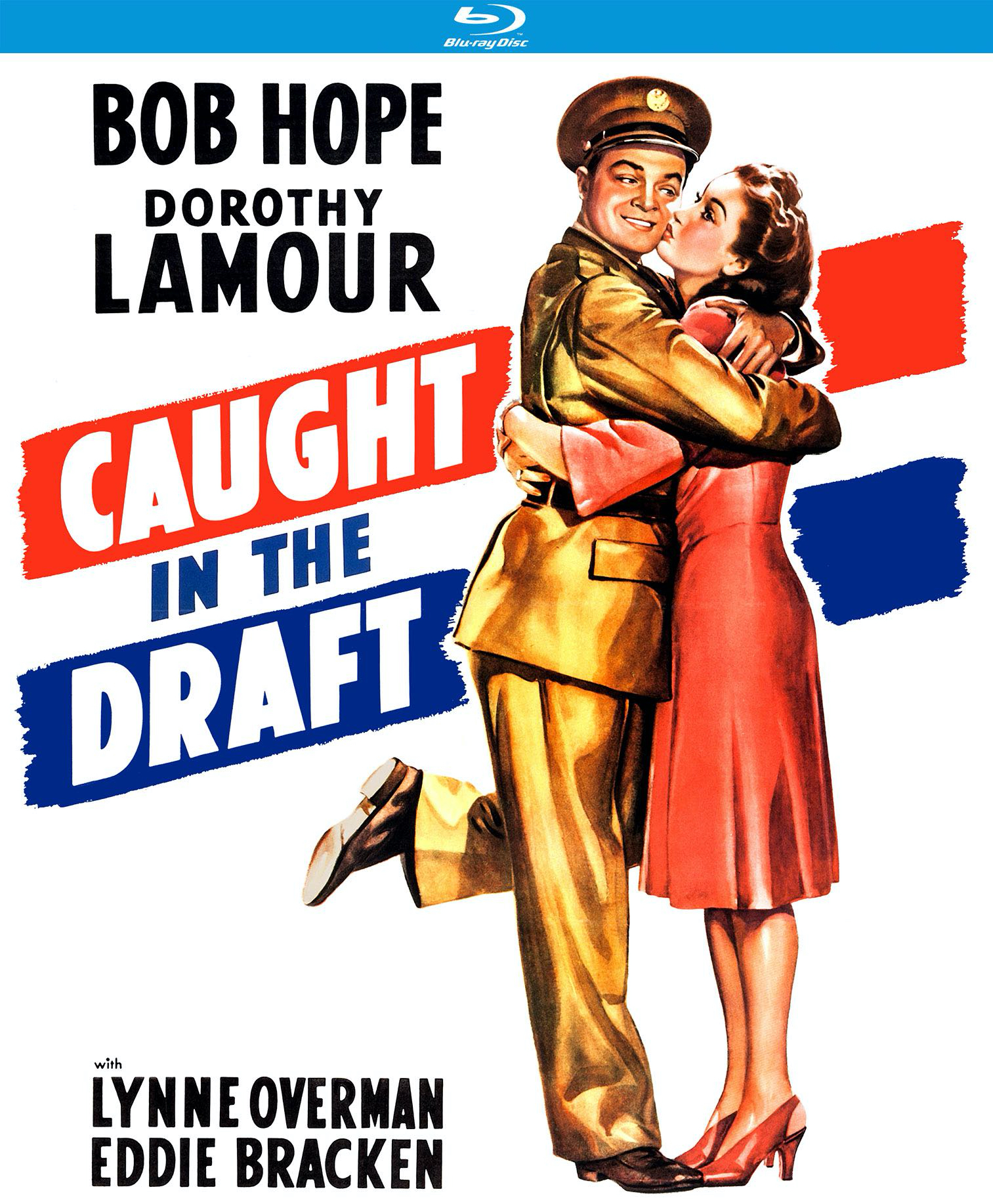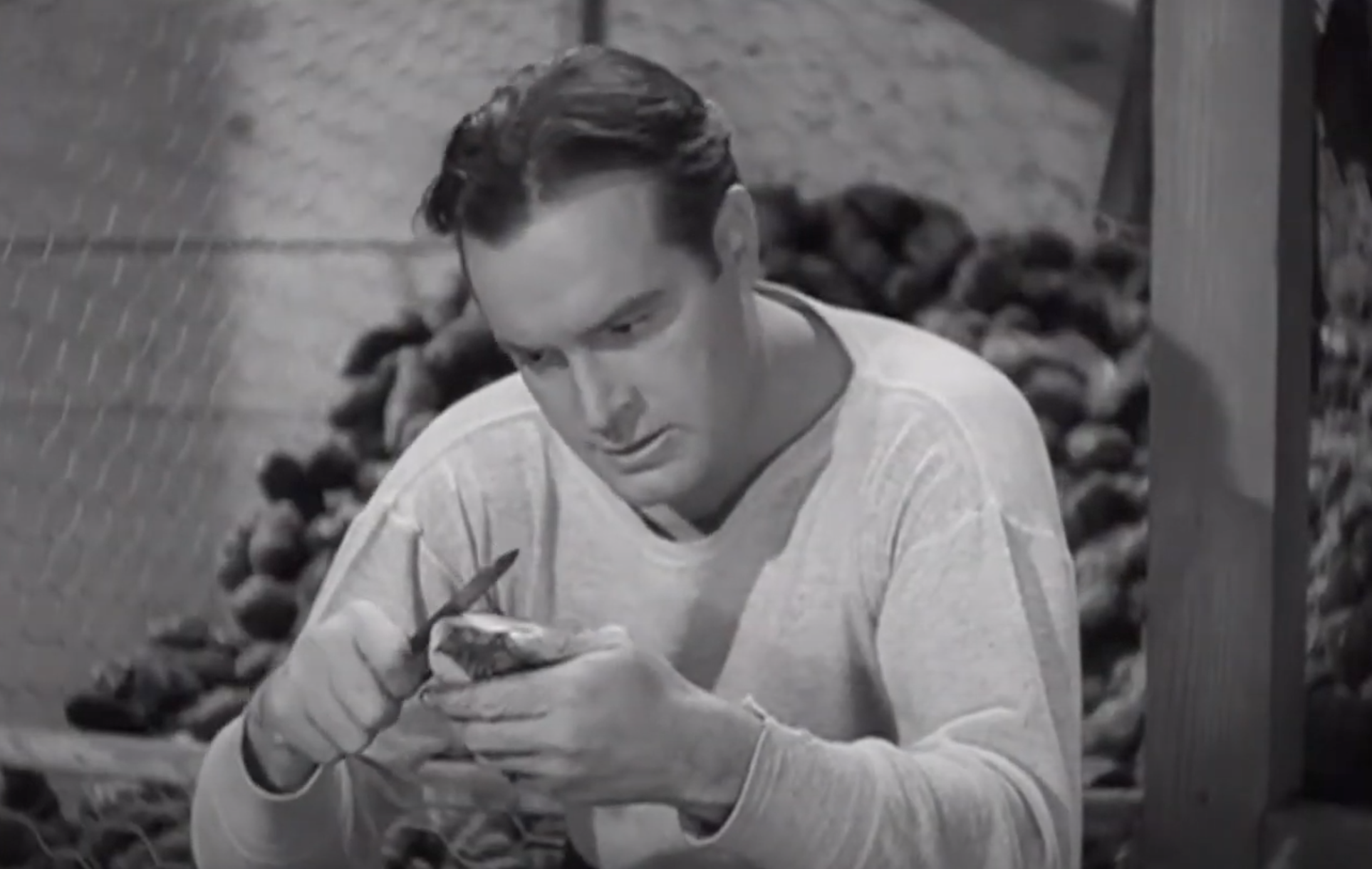In the early aughts Albert Brooks delivered an entertaining speech to some industry gathering of some kind (I seem to recall it occuring in Santa Monica). I somehow got hold of an audio tape of Brooks’ remarks, and transcribed some of them. And one of the stand-out portions, for me, was when he talked about watching Bob Hope on TV as a kid in the 1950s, and how his father would get really excited when an upcoming Hope appearance loomed, but when Hope did his act “you never laughed,” Brooks recalled.
I can’t say I ever found Hope’s movies (or most of them) all that funny either. I’d occasionally chuckle at one of his stand-up routines on the tube, but I rarely cracked a smile at his films. He wasn’t in the business of selling humor as much as attitude — basically the attitude of a smart, selfish, cowardly opportunist with an eye for the ladies and a perhaps a slight willingness to pocked illicit dough on the side. That was his persona.
And that’s why my favorite Hope film might be Beau James (’57), a more or less straight drama about New York City major Jimmy Walker.
Among the Hope “comedies”, there’s one I saw a long time ago that struck me as moderately funny — a silly WWII-era romcom called Caught in the Draft (’41). Don’t hold me to this as I haven’t seen it in decades, but it might be funny. One of the mildly amusing things is the name of Hope’s character — Don Bolton. (How can a movie about a guy with that name not be good for a chuckle or two? Don Bolton!) Sometimes it’s the inauspicious little sausage comedies that seem best in retrospect.
Directed by David Butler and written by Wilkie C. Mahoney and Harry Tugend, Caught in the Draft costars Dorothy Lamour, Lynne Overman, Eddie Bracken, Clarence Kolb and Paul Hurst. I’ve just discovered that Kino Lorber has a Bluray version for sale.

I’ve always loved this old SCTV skit about longtime Bob Hope worshipper Woody Allen attempting to collaborate with his idol. Until today I never knew that the phrase “aging Pentagon clown,” a Hope description that I first heard back in the early ’70s, came from a Russian journalist.

